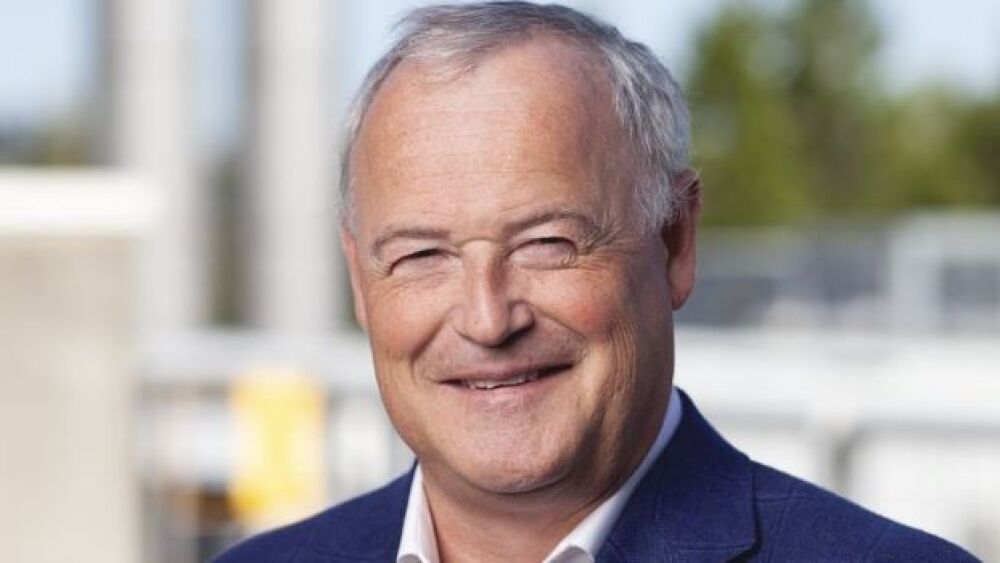Athira Pharma is putting a positive spin on its topline data from a Phase II trial of fosgonimeton, emphasizing positive subgroup analysis, but it missed the primary endpoint.
Athira President and CEO Mark Litton/Courtesy of Athira Pharma
Athira Pharma announced topline data Wednesday from its exploratory ACT-AD Phase II trial of fosgonimeton in mild-to-moderate Alzheimer’s disease. The company is putting a positive spin on it, emphasizing positive subgroup analysis, but the trial missed the primary endpoint.
Fosgonimeton is a small molecule engineered to enhance the activity of hepatocyte growth factor (HGF) and its receptor, MET. Both are expressed in the central nervous system to promote brain health and function. A Phase Ib study that evaluated latency biomarker data over eight days on patients receiving fogonimeton alone provided “compelling” data, which gave the company more confidence in this Phase II study.
Athira CMO Hans Moebius, M.D., Ph.D., said, “this Phase II trial provides valuable insights into the nature of this novel intervention over 26 weeks. ACT-AD was designed as a learning study to further investigate the ERP P300 biomarker signal over six months, assess safety in a patient population more representative of the real world, by allowing the use of add-on standard-of-care acetylcholinesterase inhibitors (AChEIs, e.g., donepezil), and explore fosgonimeton’s effect on psychometric outcomes, including ADAS-Cog11, to inform the ongoing Phase III LIFT-AD study. To that end, this study achieved its goal.”
The trial was designed to demonstrate differences in the biomarker ERP P300 latency, the primary endpoint. ERP P300 latency is a functional measure of working memory processing speed. But the study missed that endpoint.
“However a pre-specified subgroup analysis indicated a potential diminished effect of fosgonimeton when given in combination with AChEIs. A subsequent post hoc analysis of the data from patients on fosgonemeton monotherapy showed a meaningful improvement in both ERP P300 latency (-28 milliseconds) and cognitive performance (ADAS-Cog11: -3.3 points) compared to placebo at 26 weeks,” Moebius said.
The trial enrolled 77 patients in the U.S. and Australia ranging in age from 55 to 85 years who had a score of 14-24 on the Mini-Mental State Exam (MMSE) and a score of 1 or 2 on the Clinical Dementia Rating (CDR) scale global score. Patients continued standard-of-care therapy (AChEIs) if they were receiving it, with about 60% on standard-of-care treatment. Patients were randomized 1:1:1 to receive placebo or fosgonimeton at either 40 mg/d or 70 mg/d.
Secondary endpoints included ADAS-Cog11, a measure of cognition, ADCS-CGIC, a measure of global clinical change, and ADCS-ADL23, a measure of functional change. However, the trial was only powered to show statistical significance for change in ERP P300 latency.
The drug was generally well-tolerated and had a favorable safety profile.
“As planned, the ACT-AD study results have provided us with important insights that we will use to inform our ongoing LIFT-AD study, which is enrolling mild-to-moderate AD patients,” Mark Litton, Ph.D., president and chief executive officer of Athira said. “We are encouraged by these data as they show more than just biologic activity; although a small sample size, they suggest a potentially beneficial treatment effect as a monotherapy that in the ACT-AD study was similar to standard-of-care with a favorable safety profile.”
He also noted they have a larger ongoing study with more than 200 patients that will complete at least 20 weeks of treatment. They also report a sufficient cash runway to continue the development of the drug.
Over the past year, the company has been rife with drama. In October 2021, Athira’s then-CEO, Leen Kawas, left after it was found that papers she published as a graduate student contained altered research. Litton took over.
Then, one of the company’s major investors, billionaire Richard ‘Ric’ Kayne, called for the board to dump Litton and replace him with someone else, a process that carried on into May, when he called for Dr. Ronald Krall, former chief medical officer of GlaxoSmithKline, to take the reins. But Athira has pushed back on Kayne’s demands and Litton is still in charge. In addition, in May, shareholders approved the election of all three of Athira’s independent director nominees, Joseph Edelman, John M. Fluke, Jr. and Grant Pickering.
Despite the company’s efforts to place a positive spin on the trial data and having won its proxy battle with Kayne in May, the study results suggest Athira has more battles ahead.





